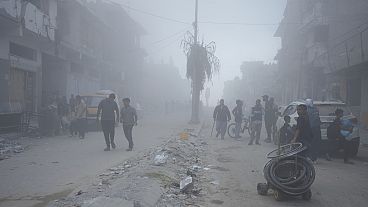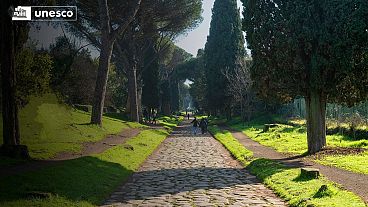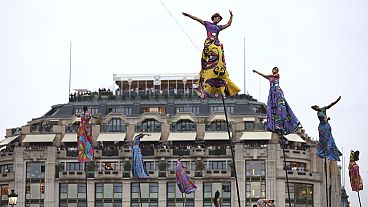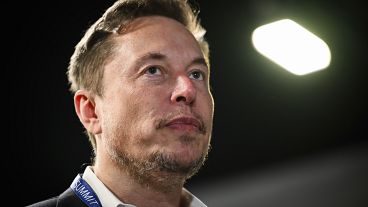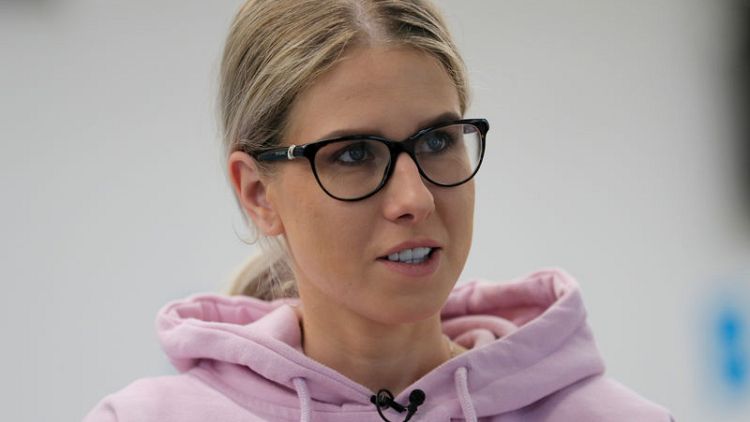By Andrew Osborn
MOSCOW (Reuters) - A hunger-striking opposition politician and close ally of jailed Kremlin critic Alexei Navalny has warned Russian authorities to allow a free and fair election in Moscow later this year or face weekly street protests and rising discontent.
Lyubov Sobol, 31, is one of 16 opposition-minded candidates the authorities have barred from running in September's election for Moscow's city legislature, a vote seen as a dry run for a national parliamentary election in 2021.
The authorities say they are not allowing Sobol and her colleagues to take part because they failed to collect enough genuine signatures of support, a condition of being registered.
Sobol and the others say that's a lie and are insisting they be allowed to take part in a contest they believe they could win at a time when the ruling United Russia party's rating is at its lowest since 2011 and President Vladimir Putin's own rating has fallen due to discontent over falling living standards.
Polls in the past have shown support for Navalny, a lawyer and anti-corruption activist, only in the single digits nationwide. But backers note he won almost a third of the vote in a 2013 Moscow mayoral race and say his allies like Sobol enjoy widespread support in the Russian capital.
Sobol said the Kremlin faced a political crisis.
"It won't be solved until they understand that people are demanding political representation that takes account of their own opinion and will, that these people are not going away, and that the country and Moscow have changed. It's not possible to ignore people anymore," Sobol, 31, told Reuters.
"The main thing now is to have mass regular but peaceful protests ... and not to give up."
Putin and the Kremlin have not commented on the standoff, but Moscow Mayor Sergei Sobyanin has accused opposition activists of plotting mass disorder, something he has promised to head off.
JAIL
Police rounded up more than 1,000 people in the Russian capital on Saturday in one of the biggest crackdowns of recent years.
Sobol was detained and released by police three times in connection with Saturday's protest and was carried out of Moscow's electoral commission on a sofa by police officers on one occasion.
Eight of Sobol's political allies including Navalny are in jail for breaking tough protest laws and potential criminal cases hang over others, including Sobol.
Sobol, on her 18th day of a hunger strike to protest over her exclusion from the election, said the protests would continue every week until the authorities allowed a free election.
"People are ready to go on. I plan to go out every weekend on the city's streets. I'm not afraid of the possibility of detention, of beatings, or of the opening of criminal cases," she said.
Sobol, who said she had lost about 8 kg, earlier this week called on people to gather in Moscow this Saturday whether the authorities authorise a protest or not.
The authorities say Russian law requires the timing and location of such protests to be agreed with them in advance. Sobol says she and her allies try to agree such details with authorities but are often refused and that the Russian constitution allows freedom of assembly.
After 17 days of consuming only water and vitamins, Sobol, who at one point needed two people to help her walk across a room, said she intended to continue her hunger strike even though she felt "pretty bad".
Watched by a bodyguard, Sobol, who has a 5-year-old daughter, said she received daily threats from unknown individuals and believed the authorities were tracking her.
"It's very dangerous to do opposition politics in Russia," she said. "Of course it's not just me who is at risk but members of my family and close allies too."
Her husband, a sociologist, was stabbed in the thigh with a psychotropic substance in 2016 by an unknown assailant.
Although the election for the Moscow city parliament is a local one, Sobol believes it is a litmus test.
"If they steal these elections there won't be any more elections in Russia," she said. "These elections are the last point that will show if there is a chance to do battle on the legal electoral field or not."
(Editing by Janet Lawrence)

